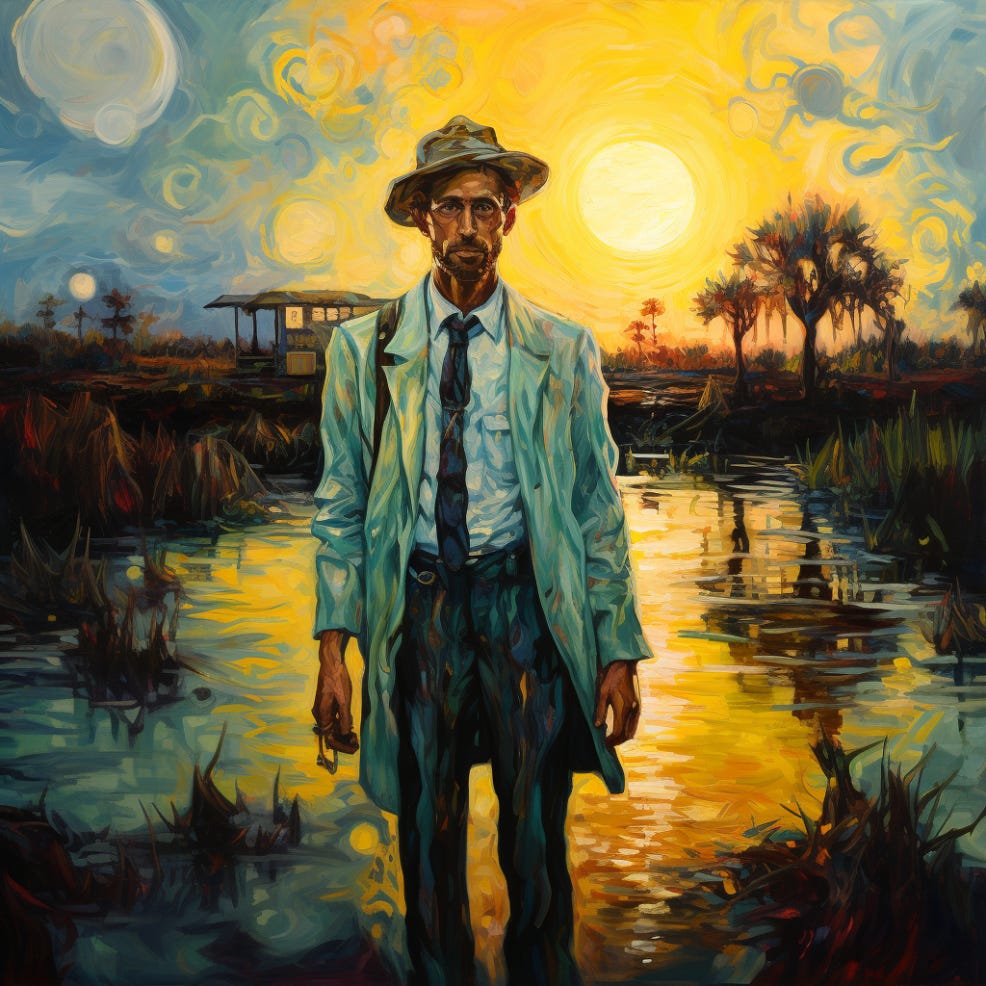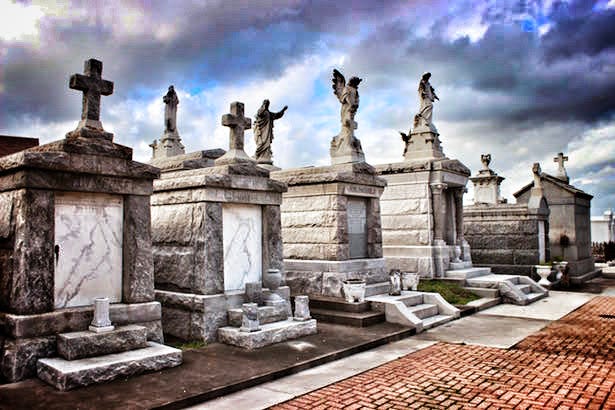Your Doctor is an Inadvertent Faith Healer
The relegation of the placebo effect to mere snake oil.
For the next five weeks, posts will be published on Wednesdays.
A British doctor, John Haygarth, was the first person to ever formally notice the placebo effect. A popular tool at the time was called the “Perkins Tractor” — little wands you waved around a painful joint. They worked!
Or, well, it depends on what you mean by “worked.”
Haygarth noticed that you could replace the expensive alloy metal with cheap wood, and they worked just the same. The ritual was what was important, not the material. He said about the effect. “Such is the wonderful force of imagination!”
Since then, the marvelous force of imagination has worn out its welcome. Now, it’s nothing but a confounding variable on our way to finding “true” medicine. The term "placebo" has become synonymous with “snake oil.”
Despite that, the placebo effect has grown in recent years as people’s “faith” in modern medicine has grown. The material effect of drugs was 27.3% greater than the placebo in 1996, compared to only 8.7% in 2013 (thanks to Seeds of Science for gathering this data).
Is there a way to intentionally deepen and expand this effect? To answer that, let’s rewind to a time when pretty much the only form of medicine was the placebo effect.
My great uncles were what is called in French “traiteurs.” Cajun faith healers. Louisiana swamp mystics.
Yeah.
Their ancestors were the first French people to cross the Atlantic and land in what is now Canada. They settled in the "land of snow" and began a new life.
But just as they began to put down tenuous roots, the British army conquered, slaughtered, and systematically rooted them out. The Acadians (Exiled French Canadians who later became the “Cajuns” of Louisiana) were forced to leave their dead and dying loved ones behind and drag whatever they could southward.
You can hear more details about this painful exodus in the popular song Acadian Driftwood (banger, tbh).
All driftwood eventually washes up in New Orleans. The city, a port at the nexus of central America's rivers, is also (probably not coincidentally) a spiritual underworld where many lost souls wind up:
While they began to farm the swampy earth and fish the marshy water, there was a lingering sense of domicide (death of home). Being uprooted leaves an indelible mark on a people’s DNA long after the trauma is over. Mardi Gras is a festival of turning the world upside down for one day a year (Fat Tuesday) to prevent too much top-down repression in Catholic France. Down here, though, it's a year-round debauchery. For some added cosmic irony, the dead reside among the living in above-ground tombs in the water-logged New Orleans:
What was lost was not just the land under our feet. It was my people’s grand narrative.
It's hard for the modern mind to understand what grand narratives “do.” They unify the psyches of the people who hold them. They give the sort of “healing” ritual you generate from a placebo but to an entire people. This is a purely anthropological observation: if you don’t have a grand narrative, you don’t have a living society.
My Great-Great Uncle Claude was born on a farm in the middle of this trauma. One fall, he broke his leg and uniquely had the time to learn to read. The written word transformed his consciousness and made him… weird to his family. But he couldn’t stop. He became obsessed with the stories of Exodus. Moses has been the inspiration for many transplanted people, including Southern black slaves (whose culture nicely dovetails into the Cajuns to create a rich Creole culture in New Orleans).
Word spread about Great-Great Uncle Claude. He radiated an unexplainable light that people wanted to bask in. He had somehow embodied the unity he received from the narrative in the archetypal text. It's probably not what you think – there was no chanting or waving arms – it was mostly just sitting with people and listening to their stories.
Soon, there were Cajun people from all over the state, sick with mental illnesses and family dysfunction, making a pilgrimage to see Claude, hoping to be healed. Hoping to transform this swamp into their home.
Of course, as men often are, Claude was imperfect. He left behind his two infant sons to go on an exciting pilgrimage.
During his last days, though, he finally reconciled with his boys, and they got to share stories of their experiences.
Like their father, they were famous men in the French-speaking world. Their quest wasn’t just to heal a single woman’s agoraphobia or a man’s alcoholism – it was to save the lost Cajun tribe from homelessness.
They were hosted on the University of Lafayette, Cajun French Language channel and would take live call-ins to heal people. A professor sat in on the calls, hoping to make his scientific career.
I’m sure they hoped we would know much more about this strange effect by now.
Do we?
All scientists accept the "placebo effect." Given the right set and setting, humans have a natural capacity to heal themselves. You can’t directly “measure” this healing ability because, like the collective flow of a well-practiced jazz band, it is “emergent” and not found in any single instrument or note.
Modern medicine aims to minimize “emergence” (confounding variables) in order to isolate pharmaceutical impact: double-blind placebo-controlled studies. That’s perfectly reasonable if you're searching for the pure material effect.
But, emergence happens in medical contexts, like it or not. Put a guy in a lab coat and get him to hand me a sugar pill and tell me it will cure my anxiety, my anxiety will go down. My doctor is already an inadvertent faith healer.
Since that element is always trying to be controlled and reduced, the faith-healing ability of doctors is relatively weak. Sterile buildings, a cold manner, and impersonal care are all aimed at creating a sense of clinical competence. “Bedside manner” is our limp gesture toward faith healing. Hardly transformative.
There is no getting away from people’s need for a deep, transformative narrative. As the “story” we all agree on dissolves away in the modern world, people get seriously sick. “Diseases of despair” are killing people faster than material illnesses. As a result, people turn to all sorts of weird woo-woo rituals, cults, and spiritual-but-not-religious TikTok "manifesting.” I’m sitting in a coffee shop listening to people talk about their “Ares moon” at this moment.
The deeper the narrative goes, the more complete the wholeness, the greater the healing. And the deepest narratives are, by definition, religious. Again, I’m making an anthropological point, not a mythical one. Well, both.
The thing about myth (and religion), like the placebo effect, is that it will not be measured by definition. It is emergent (like the jazz band) — it exists in no particular part.
When I was about 10 (youngest of many), my grandparents had a 50th wedding anniversary. My "Uncle Junior," as we called him (Claude's son), grabbed my mother's hand and said, "Your youngest son has the gift."
You have to understand that he's not making a scientific claim that can be “falsified.” He's "feeling" the pattern of our family's narrative myth. This sort of thinking – while not scientific – is also necessary for our survival. Traditionally, the youngest son doesn’t inherit any land, so he’s the one who must leave home on an adventure searching for the promised land. That’s part of the vibe, I’m sure. And that’s basically how my life played out.
I'm not trying to say I have some magical gift. We all find greater meaning by searching out those patterns and taking our rightful place in the cosmos. That pattern is what’s real.
Patterns are often more real than matter.
You don’t find good music in the wood and steel of a piano; you find it in how the vibrations it produces align with the patterns of being.
We readily accept there are “real” patterns to our individual lives – we call those “habits.” Easy to believe in habits, right? Why, then, do we struggle to see patterns beyond the individual? When on a larger scale than a habit, suddenly noticing patterns (grand myths, religions, symbols) is mumbo-jumbo. Ah.
Really, all the things we consider most real and reasonable are patterns. Math. Evolution. Geometry.
Why not a narrative myth? Of course, I’m referring to the work of both Joseph Campbell and Carl Jung.
But what’s at stake is so much higher than story structure or some other abstract thing. Once we embody a sense of "home," we can begin to pass that feeling of peace along and "heal" other people, too.
It’s not just a metaphor – it’s real.
So, there is an adventure to be had here.
There is no way to “opt-out” and “just be rational.” That’s like trying to speak without a language; good luck with that.
I know that we moderns struggle to see the world this way.
Let’s talk about this. Maybe we can tease out some meaning together and learn to recapture the power of what has been dismissively named “the placebo effect.”
Thanks for reading,
Taylor
Good stuff this week:
Thanks to everyone who helped me put this together:










Cutting room floor:
We seek fortunes in our mythical House of the Rising Sun. Gambling, addiction, and all sorts of bizarre vice were part of normal life. You can get a sense of what I’m talking about in the first season of “True Detective.” That voodoo-horror vibe can only come from the grasping of meaning of a people without a home, waiting for a new grand narrative.
“This place is like someone’s memory of a town… but that memory is fading.” — Rustin Cohle
There’s an indie band from Ruston, Louisiana you might know called Neutral Milk Hotel and their most famous album is a screaming ode to the hero of the album, Anne Frank. The commiseration with Jews is no coincidence.
Famously, when the Isrealites escaped the tyranny of Egypt, they wandered for 40 years in the desert, worshiping false idols. Similarly, Cajuns worship various voodoo idols and "dark arts."
I've never connected the dots between placebo, healing, and grand narratives (stories) this way Taylor. Though I'd have no hesitation in saying that I've gravitated toward and experienced the healing of myself and others by aligning with meaningful stories. Especially stories that awaken a sense of Purpose, Home, and our pattern of belonging. From my own experience of your writing, you do have the gift. You're a pattern weaver, reorganizing and reframing our attention so that we can understand we've been up until now, and believe again in where we're going.